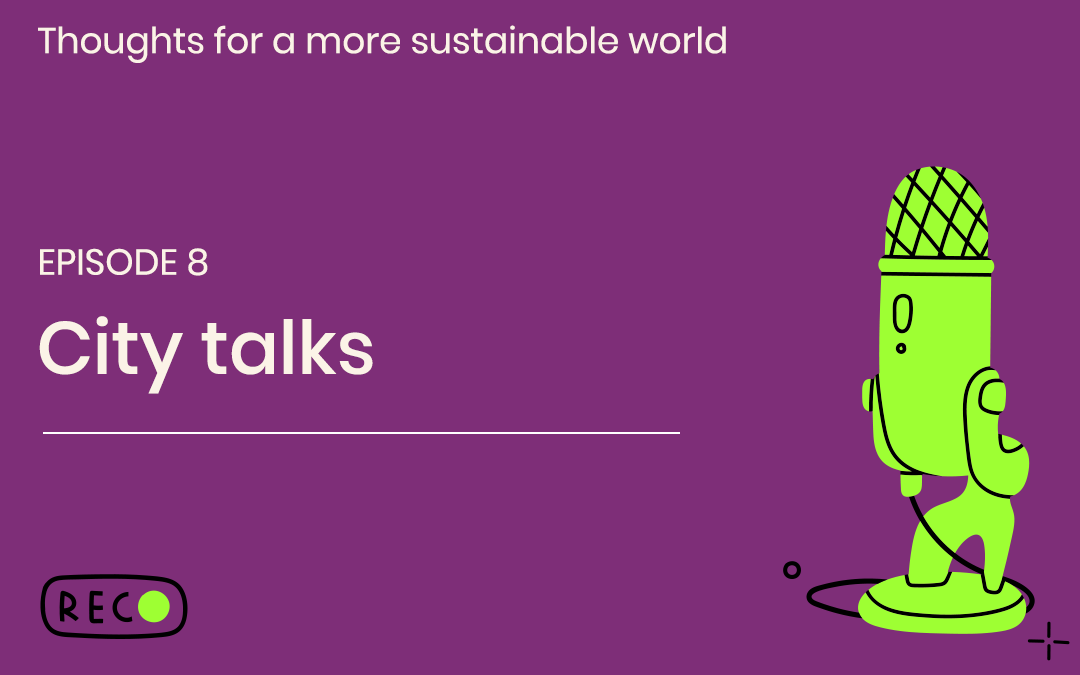E8: City talks
Throughout recent years, there have been many attempts to cope with climate change. Hence, there are different calls to promote a sustainable livable society. The SDGs came as a response to the numerous rising threats to the wellbeing of our communities.
According to the United Nations (2018), by 2050 almost 70% of the world population will live in urban areas. This urban transition raises several socio-economic challenges and addresses the core of SDG goal 11: sustainable cities and communities. One of the major challenges is how these new smart cities should be organized in order to provide a safe and inclusive home for all people. Smart mobility has huge potential in decreasing emissions and making transport networks more sustainable. Therefore, providing a safe and affordable logistic environment in urban areas.
In this episode of our podcast “City Talks”, we will focus on an important aspect of smart cities, namely smart mobility. While having a critical review of the necessary means, as to how this type of transportation can promote innovative solutions for smart cities. First, Noussayba, urban planner and PhD student at Kyoto University in Japan, will provide an in-depth analysis on the role of mobility in smart cities. Next, Professor Manuel Aalbers, Professor of Geography at KU Leuven (Belgium), will elaborate on the role of government in the trajectories of sustainable urban mobility, as the impact on social relations is inherent in a fair and equitable mobilization. Finally, Mr. Vanbeylen, store manager of Swapfiets Leuven, will take us behind the scenes of one of the most innovative mobility companies in Europe. Their goal is to create a better and healthier living environment by increasing bicycle use in different cities around Europe.
To sum up, our societies are going through different changes. Climate change is one trigger for numerous threats. Thus, providing sustainable and innovative alternatives can have a direct impact on the well being of societies, hence ensuring sustainable cities and communities.
References
Benevolo, C., Dameri, R. P., & D’auria, B. (2016). Smart mobility in smart city. In Empowering
organizations (pp. 13-28). Springer, Cham.
Ranchordás, S. (2020). Smart Mobility, Transport Poverty and the Legal Framework of Inclusive
Mobility. In Smart Urban Mobility (pp. 61-80). Springer, Berlin, Heidelberg.
United Nations. (2018). 68% of the world population projected to live in urban areas by 2050,
says UN | UN DESA | United Nations Department of Economic and Social Affairs. Retrieved 19
December 2021, from https://www.un.org/development/desa/en/news/population/2018-revision-of-world-urbanization-prospects.html
European Commission. Smart cities. Retrieved 19 December 2021, from https://ec.europa.eu/info/eu-regional-and-urban-development/topics/cities-and-urban-development/city-initiatives/smart-cities_en
United Nations. Goal 11 | United Nations Department of Economic and Social Affairs. Retrieved
19 December 2021, from https://sdgs.un.org/goals/goal11
Credits
Interviewees:
Noussayba, urban planner and PhD student at Kyoto University (Japan).
Professor Manuel Aalbers, Professor of Geography at KU Leuven (Belgium).
Guust Vanbeylen, store manager of Swapfiets Leuven.
Music from free music archive:
“Calming In The Sun” by Alex Make
“Afrobeat” by Crowander
“Stop on a Bench” by Crowander
“Pianoman Sofa Sofa” by Lobo Loco
